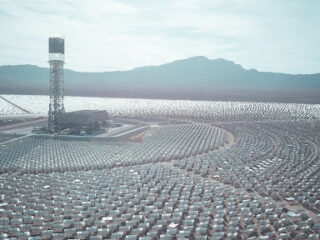 Ever wondered what’s behind the buzzword ‘Green Technology’? As our planet grapples with environmental challenges, this concept has taken center stage. It’s not just a trend, but a crucial shift towards sustainable living.
Ever wondered what’s behind the buzzword ‘Green Technology’? As our planet grapples with environmental challenges, this concept has taken center stage. It’s not just a trend, but a crucial shift towards sustainable living.
Green technology, also known as ‘clean technology’, is the future of innovation. It’s about harnessing the power of nature, reducing waste, and making conscious choices that benefit both our planet and its inhabitants.
In this article, you’ll delve into the world of green technology. You’ll understand its importance, how it’s transforming industries, and why it’s more than just a fancy term. So, if you’re curious about our sustainable future, keep reading. The planet you save may be your own.
What Is Green Technology
Green technology, often hailed as ‘clean technology, emerges from an ecological mindset. It represents a suite of techniques, products, and practices that leverage renewable materials and energy sources. The crux of this technology lies in reducing emissions, conserving natural resources, and minimizing waste. As you delve into this concept, you would discover products and systems as varied as solar panels, hybrid cars, and green buildings. From agriculture to the construction industry – green technology holds sway on varied platforms.
The relentless industrialization and escalating population surge have elevated the demand for energy. Harnessing this energy in traditional ways is no longer a sustainable model, hence the need for green technologies. They enable us in preserving the environment, cutting down carbon footprints, lowering energy consumption, and ensuring a sustainable future for the forthcoming generations.
Exploring Various Aspects of Green Technology
Delving deeper into green technology, let’s explore the facets contributing to its global significance.
Green Technology in Environmental Conservation
Environment preservation forms a cornerstone in green technology application. Harnessing these technologies enables a sustainable future through conservation efforts. For instance, water conservation tech like rainwater harvesting systems dramatically minimize freshwater depletion. Similarly, eco-hardware such as sustainable building materials contributes to decreasing deforestation rates. Thus, green technology closely aligns with the aim of environment preservation, fundamentally impacting sustainable choices and lifestyles.
Green Technology in Energy Generation
A prime focus of green technology lies in energy generation. Fossil fuels, though prevalent, pose grave concerns owing to their finite nature and adverse environmental impacts. In contrast, green energy technologies use renewable sources such as wind, solar, and hydro power. Using a solar panel, for instance, provides electricity without creating harmful greenhouse gasses. Similarly, wind turbines convert kinetic energy into electricity, leading to lower carbon footprints. Transitioning to these renewable energy sources, you’ll find green technology instrumental in sustainable energy generation.
Green Technology in Waste Management
Think about how much waste society produces daily. Now, imagine green technology turning this waste into resources or reducing waste altogether. This transformation is one part of green technology’s role in waste management. Case in point: recycling technologies convert waste into useful materials, minimizing landfill usage. Another is composting technologies, transforming organic waste into nutrient-rich soil. By leveraging these technologies, green waste management not only reduces waste but also contributes to resource conservation.
Proven Benefits of Leveraging Green Technology
Witness firsthand the rewarding outcome green technology provides. As the world gears up to take environmental consciousness seriously, green technology steps up as a game-changer.
Economic Benefits of Green Technology
Partaking in green tech-related activities often results in significant economic gains. These eco-friendly measures offer an untapped potential for high profitability. For instance, renewable energy sources outshine fossil fuels. Solar and wind power, two pinnacles of renewable energy, provide cost-effective solutions that suppress rising energy bills. Water technologies and eco buildings, too, depict an ideal scene of reduced operating costs while elevating property value.
Moreover, green technology industries create jobs—a colossal sum of 10.3 million employees in the renewable energy sector alone, as accounted for by the International Renewable Energy Agency in 2017. Hence, green technology stimulates the building blocks of a resilient economy.
Environmental Benefits of Green Technology
Green technology executions go hand-in-hand with environmental benefits. Look deeper at renewable energy—solar and wind power take you a step closer to becoming carbon-neutral. Embracing them helps decrease greenhouse gas emissions, a major contributor to climate change.
Resource conservation—it’s another paramount factor. Clean energy technologies drastically reduce non-renewable resource depletion. With this approach, not only do you limit harmful extraction practices but also elongate the life span of the world’s precious resources.
Additionally, green technology boosts waste management and recycling initiatives. By reusing materials, you can drastically reduce landfill pile-up. A prime example—various tech companies have initiated ‘e-waste’ recycling programs, curbing the exponential increase of electronic waste.
Consequently, green technology indexes improved air, soil, and water quality. It fosters habitats that teem in biodiversity, championing wildlife conservation. The National Wildlife Federation affirms that decentralized power systems, like solar and wind, cause fewer disturbances to wildlife and their habitats.
In a nutshell, leveraging green technology inherently caters to both economic gain and environmental conservation, laying the foundation for a sustainable future.


